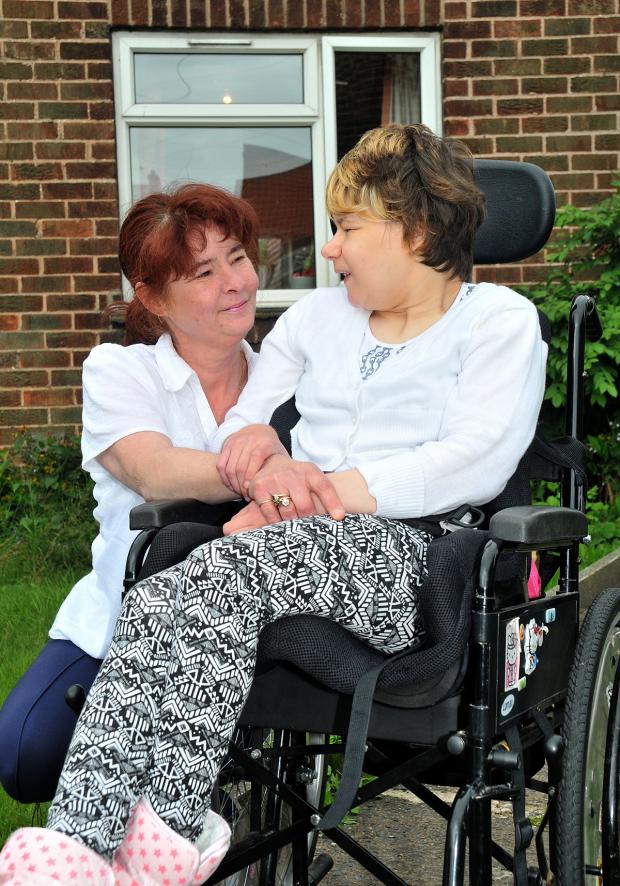Active brain 'keeps dementia at bay'
Keeping mentally active by reading books or writing letters helps protect the brain in old age, a study suggests.
A lifetime of mental challenges leads to slower cognitive decline after factoring out dementia’s impact on the brain, US researchers say.
The study, published in Neurology, adds weight to the idea that dementia onset can be delayed by lifestyle factors.
An Alzheimer’s charity said the best way to lower dementia risk was to eat a balanced diet, exercise and stay slim.
In a US study, 294 people over the age of 55 were given tests that measured memory and thinking, every year for about six years until their deaths.
‘Bedroom tax’ may force disabled woman to move house
Lisa Evans and her daughter Vicki at the home they fear they will have to leave because of the bedroom tax
9:46am Tuesday 2nd July 2013 in News By Mark Stead, Political Reporter

A MOTHER and her disabled daughter are living in fear of being torn away from the community they love – because of the so-called bedroom tax.
Lisa Evans, of Kelfield, between York and Selby, has seen her weekly housing costs quadruple since the introduction of the Government’s levy on extra rooms earlier this year, and says she may now have to leave her home of 17 years.
The 48-year-old is the main carer for her 25-year-old daughter Vicky, who is confined to a wheelchair after an operation on her heart as a baby left her with brain damage.
Lisa has been told she must pay the tax for at least two of the three small bedrooms at her house. She has applied to Selby District Council for discretionary support, but even if she succeeds, this will only be a temporary measure.
Lisa said she has been told she and Vicky could potentially move to a smaller bungalow, but has been given no indication where.
A grant paid for a two-bedroom extension 11 years ago at their home, which has en-suite facilities and specialist equipment for Vicky and a room for a carer.
“This is Vicky’s home – she is part of the community and around people who know her and help her,” said Lisa, who works part-time and whose previous weekly housing costs have risen from £12 to £50.
“If we were to be moved, where would we go? We have no idea where it would be and whether we would have any equipment or transport for Vicky. We would be going to nothing and I feel I wouldn’t be able to support my daughter any more.
















